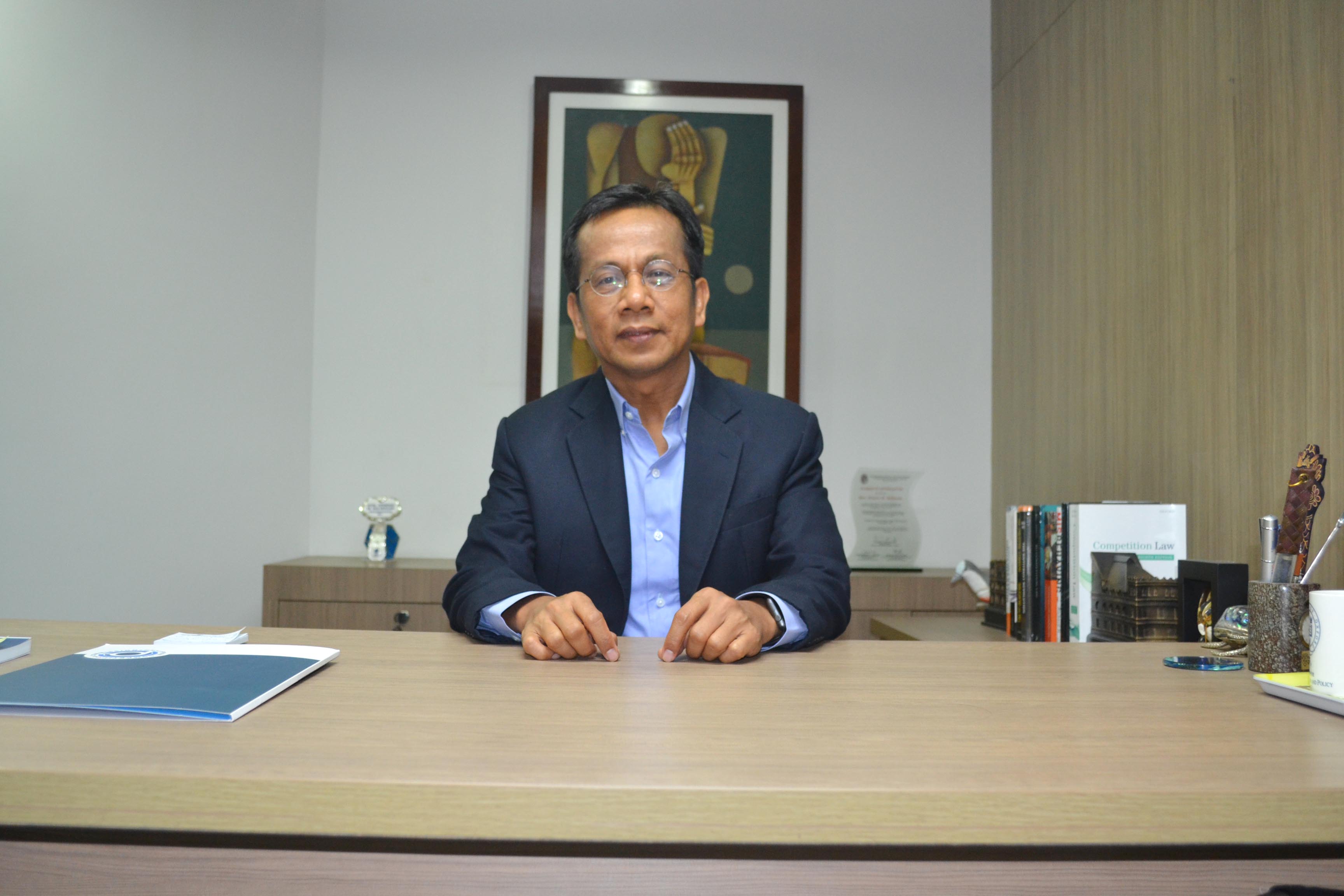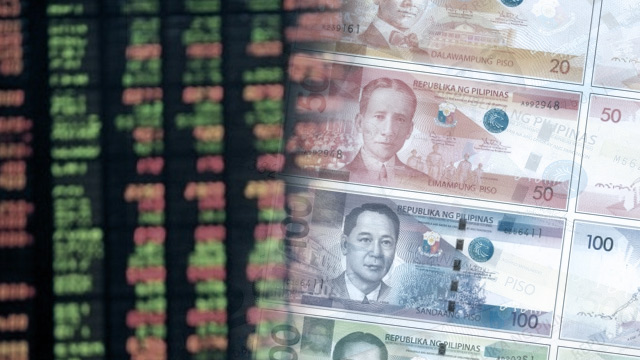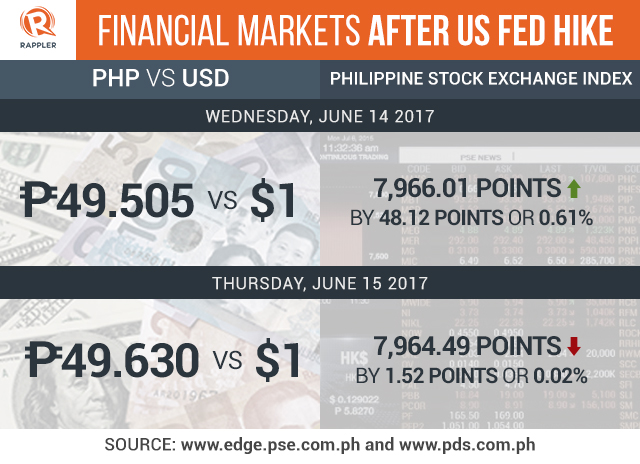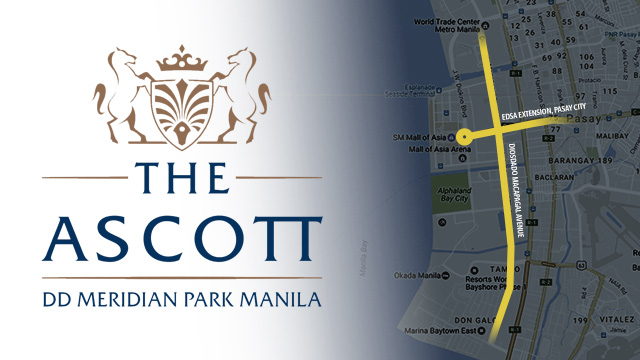![RAISE. The SEC proposes to double the minimum public float level to 20% by July 1, 2017.]()
MANILA, Philippines – Owners of some of the country's biggest listed firms would have to reduce control by selling more shares to the public by 2018, under a proposed rule of the Securities and Exchange Commission (SEC).
Under the proposed rule, the SEC wants to hike the minimum public float of Philippine listed firms to 20% from the current level of 10%.
Diversified conglomerate San Miguel Corporation and its major shareholder, Top Frontier Investment Holdings; Lucio Tan-led airline firm PAL Holdings Incorporated; and the Gotianun family's holding firm, Filinvest Development Corporation, are among those to be affected by the proposed rule.
Their public float level was at 15.25%, 11.9%, 10.22%, and 10.08%, respectively, as of end-2016. (READ: San Miguel to comply with 20% minimum public float)
They are among 68 companies – 25% of the 268 companies whose shares are traded in the Philippine Stock Exchange (PSE) – to be affected by the proposal, data from the local bourse show.
These companies are controlled by some of the largest firms in the Philippines and control a range of businesses that make up the daily fabric of Filipinos' lives, from financial services to property development, food and drink, and power supply.
Others in the list are subsidiaries of the country's biggest business groups: Aboitiz Power Corporation (19.15%), San Miguel Pure Foods Company Incorporated (14.61%), Lopez family-led Rockwell Land Corporation (12.79%), and former senator Manuel Villar-led Starmalls Incorporated (10.3%), and recently listed Golden Haven Memorial Park Incorporated (15%).
Tycoon Andrew Tan has 4 business units that would also need to comply: beverage firm Emperador Incorporated (16.53%), property unit Empire East Land Holdings (16.98%), tourism subsidiary Global-estate Resorts Incorporated (14.01%), and Resorts World Manila operator Travellers International Hotel Group (10.03%).
Here's what you need to know about the SEC proposal:
Why increase public float?
In a bid to increase liquidity and market depth, the SEC announced its plan to increase the public float in listed Philippine firms to 20%.
Public float refers to a listed company's stocks owned by persons other than its directors, officers, and controlling investors. Essentially, these are individuals or entities who are the minority shareholders or have little say in how a company's management decides to run its operations. They acquired from or traded their shares through the stock exchange.
The public ownership benchmark is required in companies that want to stay listed in the exchange.
Listed companies also enjoy tax privileges in stock transactions coursed through the exchange. Those that fall short of the minimum public float lose their "public ownership" status, in which case their transactions considered will be similar to typical business deals subject to capital gains tax, among others.
This rule was revoked in 2005 but corporate governance advocates pushed for its revival. The 10% rule was reinstated in 2011. Those that failed to comply delisted.
The increase in minimum public float is among the reforms the SEC has been championing to reduce the risk of price manipulation and collusion in the stock market as well as promote a larger and more dispersed shareholding of companies.
Which sectors would be affected?
{source}
<iframe id="datawrapper-chart-jZEbJ" src="//datawrapper.dwcdn.net/jZEbJ/1/" scrolling="no" frameborder="0" allowtransparency="true" allowfullscreen="allowfullscreen" webkitallowfullscreen="webkitallowfullscreen" mozallowfullscreen="mozallowfullscreen" oallowfullscreen="oallowfullscreen" msallowfullscreen="msallowfullscreen" width="100%" height="327"></iframe><script type="text/javascript">if("undefined"==typeof window.datawrapper)window.datawrapper={};window.datawrapper["jZEbJ"]={},window.datawrapper["jZEbJ"].embedDeltas={"100":354,"200":327,"300":327,"400":327,"500":327,"600":327,"700":327,"800":327,"900":327,"1000":327},window.datawrapper["jZEbJ"].iframe=document.getElementById("datawrapper-chart-jZEbJ"),window.datawrapper["jZEbJ"].iframe.style.height=window.datawrapper["jZEbJ"].embedDeltas[Math.min(1e3,Math.max(100*Math.floor(window.datawrapper["jZEbJ"].iframe.offsetWidth/100),100))]+"px",window.addEventListener("message",function(a){if("undefined"!=typeof a.data["datawrapper-height"])for(var b in a.data["datawrapper-height"])if("jZEbJ"==b)window.datawrapper["jZEbJ"].iframe.style.height=a.data["datawrapper-height"][b]+"px"});</script>
{/source}
Should the new regulation be implemented, 25% of the total number of firms currently listed on the stock exchange would be affected.
Of the 68 firms that would need to raise its public float, majority come from the industrial sector – 19 companies involved in energy, oil, distillery, and food processing will need to sell more shares.
About 12 holding firms, 9 property firms, and 7 financial services firms will also be affected, as well as some transport, mining, and casino firms. These include the Sy-led SM Investment Corporation investee firm 2Go group and the country's most valuable mining firm, Nickel Asia Mining Corporation.
The SEC said at least P130 billion worth of capital would be raised if all 68 firms comply.
Here is list of firms whose public float is less than 20%:
{source}
<iframe id="datawrapper-chart-VB5ai" src="//datawrapper.dwcdn.net/VB5ai/1/" scrolling="no" frameborder="0" allowtransparency="true" allowfullscreen="allowfullscreen" webkitallowfullscreen="webkitallowfullscreen" mozallowfullscreen="mozallowfullscreen" oallowfullscreen="oallowfullscreen" msallowfullscreen="msallowfullscreen" width="100%" height="600"></iframe><script type="text/javascript">if("undefined"==typeof window.datawrapper)window.datawrapper={};window.datawrapper["VB5ai"]={},window.datawrapper["VB5ai"].embedDeltas={"100":806,"200":655,"300":641,"400":600,"500":600,"600":600,"700":586,"800":586,"900":586,"1000":586},window.datawrapper["VB5ai"].iframe=document.getElementById("datawrapper-chart-VB5ai"),window.datawrapper["VB5ai"].iframe.style.height=window.datawrapper["VB5ai"].embedDeltas[Math.min(1e3,Math.max(100*Math.floor(window.datawrapper["VB5ai"].iframe.offsetWidth/100),100))]+"px",window.addEventListener("message",function(a){if("undefined"!=typeof a.data["datawrapper-height"])for(var b in a.data["datawrapper-height"])if("VB5ai"==b)window.datawrapper["VB5ai"].iframe.style.height=a.data["datawrapper-height"][b]+"px"});</script>
{/source}
Of the 68 firms that will be affected, 41 will need to meet the end-2018 deadline of a 15% free float level.
Remaining firms will have until 2020 to meet the 20% minimum public float level.
What happens if firms fail to comply?
If the proposed regulation is passed, firms that fail to comply with the new requirement will stand to lose a hefty sum.
Firms will also be subject to suspension and/or revocation of Registration Statements along with administrative sanctions indicated under Section 54 of Republic Act 8799 or the Securities Regulation Code.
Under this act, firms would be subject to any or all of the following:
- Suspension or revocation of securities
- A fine of no less than P10,000 and no more than P1 million, with no more than P2,000 for each day of continued violation
- Disqualification of roles pertaining to the reporting and carrying out of violations in tender offers, proxy solicitations, price manipulation, fraudulent transactions, and insider trading
- Imposition of fines pertinent to misactions and errors carried out by members, brokers, and dealers in purchases, sales, and communication on an Exchange
Firms who fail to meet the new requirement, should it be implemented, may also be subject to higher tax rates from the Bureau of Internal Revenue.
Deadlines
Here is a rundown of important dates in relation to the proposed rule:
May 31, 2017 – The SEC releases a memorandum circular for public dissemination on the proposed requirement which states: "All companies filing a registration statement pursuant to Sections 8 and 12 of the SRC and with intention to list their shares for trading in an exchange shall apply for registration with a public float of at least 20% of the companies' issued and outstanding shares."
June 15, 2017 – Last day for public comments on the proposed increase in minimum public float.
July 1, 2017 – Intended date of the implementation of new rules and regulations on minimum public ownership of publicly listed companies.
End-2018 – Deadline for publicly listed firms that do not meet the minimum public float level to increase public float to 15%.
End-2020 – Deadline for all publicly listed firms to meet the minimum public float level of 20%. – Rappler.com
![]()



























